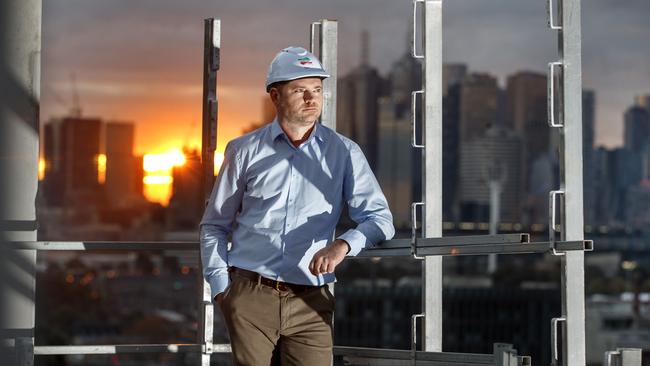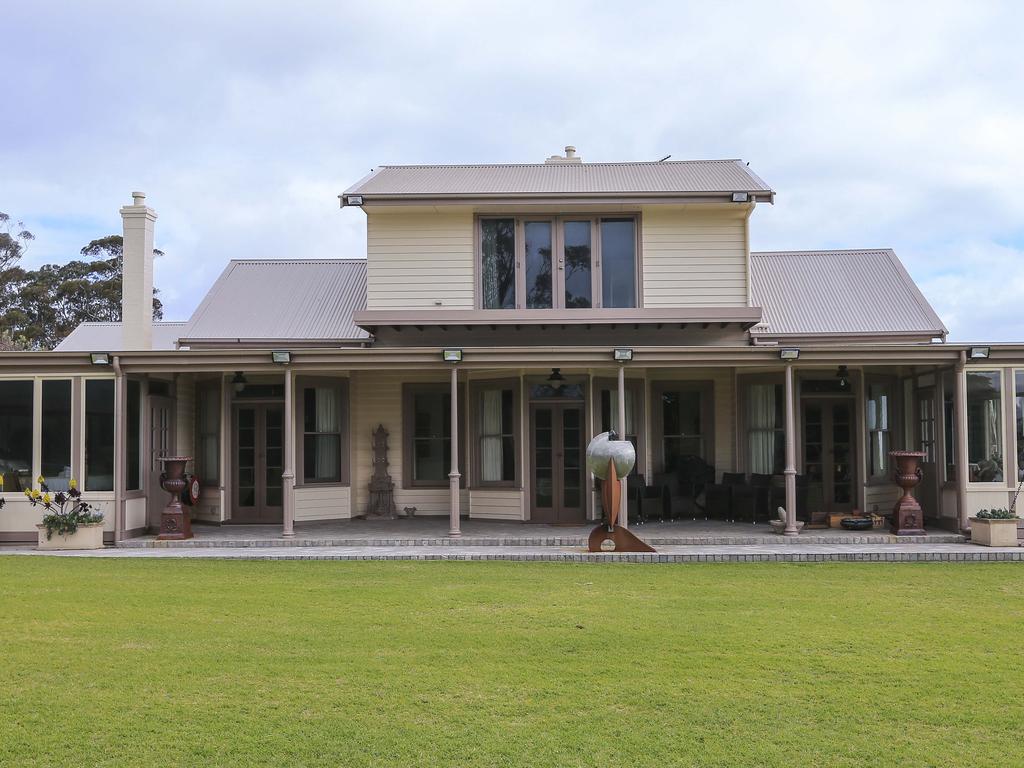Tools down: developers baulk at Victorian property tax
One of Melbourne’s largest property developers threatens to put new opportunities on hold until the government clarifies plans for a land tax rise.

One of Melbourne’s largest property developers is threatening to stop looking at opportunities for new construction until the Victorian government clarifies plans for a significant rise in land taxes.
Sam Tarascio, son of billionaire property developer Sam Tarascio Sr and managing director of Salta Properties, said the assessment of future developments involving rezoning “will be placed on hold until we understand the details of the proposed tax”.
“Until we see that detail, we cannot quantify the new costs associated with the tax,” he said.
The Victorian Labor government at the weekend announced plans to lift stamp duty on properties valued at $2m and above from 5.5 to 6.6 per cent — adding $20,000 to the price of properties at the bottom end of that range — and impose a windfall gains tax on developers of up to 50 per cent.
Josh Frydenberg told The Australian the changes — which also include increasing the land tax on commercial and investment properties valued between $1.8m and $3m from 1.3 to 1.55 per cent, and from 2.25 to 2.55 per cent for real estate valued above $3m — came at “the worst possible time” in the midst of an economic recovery from the pandemic.
“While the Morrison government is supporting the private sector to create more jobs, Labor is increasing taxes and putting Victoria’s economic recovery at risk,” the federal Treasurer said.
The increase, raising $2.4bn over the next four years, is part of Thursday’s state budget, but will partly be based on decisions to rezone land made from July 2022.
Property Council of Australia chief executive Ken Morrison described the increase as “a very retrograde step”.
“It’s not a top end of town tax,” he said. “We’ll see impacts flow through to business through their rents. We’ll see it flow through on projects which will be cancelled and stalled, and it will impact jobs.
“Even more inexplicably, we have got a set of taxes which will impact investment at a time when Victoria needs investment to create jobs and deliver its objectives.”
Danni Hunter, the organisation’s Victorian director, said: “Our once extremely attractive state will fall to the bottom of the list while other states will be able to roll out the red carpet for economy-driving investors and reap the benefits.”
But acting Victorian Premier James Merlino defended the planned increase as “reasonable” and said the state had the lowest land tax rates in the country.
“These (increases) are appropriate, they’re proportionate, they are absolutely reasonable in these extraordinary times,” he said.
“In terms of stamp duty, at the top level NSW has a higher stamp duty rate at the premium end than Victoria. In terms of land tax holdings of between $2m and $3m, Victoria is the lowest in the land.”
The tax changes do not affect principal places of residence.
Sholto Maconochie, a real estate analyst at investment bank Jefferies, wrote in a note to clients the proposed tax increase was surprising and seemed “counterintuitive” for a state lagging in the pandemic recovery.
“Increased land tax will likely be passed on via higher outgoings primarily for office and retail tenants,” Mr Maconochie wrote.
“We view this negatively, particularly given the extended (lockdowns) which have crippled many Victorian businesses. The proposed changes will impact future acquisitions and rezoning, likely passed on to buyers, therefore limiting supply and/or demand as buyers are forced to pay more for housing.”
Victoria is grappling with some of the largest debt piles in the country, with total debt increasing to $61bn according to a fiscal report released in March. In NSW, net debt is $53bn but Victoria’s liabilities are expected to grow to be 50 per cent greater than that state’s by 2023-24
The Tarascio family, with $1.52bn in wealth according to The List in February, is a major developer in Melbourne through Salta, and has a significant portfolio of projects under way.
Mr Tarascio said the sector would play an important role in Victoria’s recovery and it was not the time for new taxes. “The property sector sees itself a partner with the government in leading the recovery from the impacts of the pandemic,” he said. “This is not the time for new taxes, it is the time for government and the property sector to work together.”
Saul Eslake, the former Bank of America Merrill Lynch chief economist who led a review of taxation for Victorian Treasury, has also criticised the proposed increase as the worst option.
NSW Treasurer Dominic Perrottet is also considering changes to land taxes and stamp duties, and has proposed gradually replacing the latter with the former. Instead of a one-off upfront payment, property buyers could instead opt to pay an annual tax based on the value of their land.
According to Mr Perrottet, the change could inject $11bn into the state’s economy over four years.
ADDITIONAL REPORTING: RACHEL BAXENDALE,
JOE KELLY







To join the conversation, please log in. Don't have an account? Register
Join the conversation, you are commenting as Logout